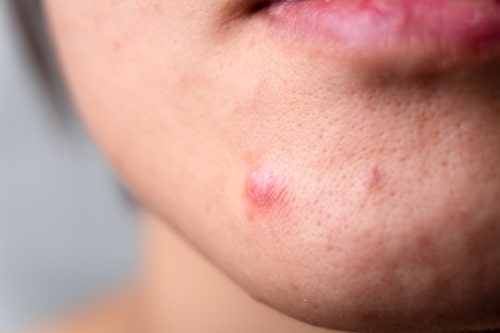Acne, with its unwelcome appearance and stubborn persistence, is a common skin condition that plagues many individuals. While it may seem overwhelming at times, there are effective ways to both treat and prevent these pesky pimples. By understanding the root causes of acne and implementing healthy skincare habits, you can achieve clear and radiant skin. In this article, we will explore various tips and strategies to help you combat acne and achieve a glowing complexion.

Understanding the root causes of acne
Acne is a common skin condition that affects millions of people worldwide. is crucial in treating and preventing breakouts. Several factors contribute to the development of acne, including:
- Hormonal changes during puberty, menstruation, or pregnancy
- Excess oil production by the skin
- Clogged pores due to dead skin cells and bacteria
- Genetics and family history of acne
By addressing these root causes, you can effectively manage your acne and improve the overall health of your skin. One key step in treating acne is to establish a consistent skincare routine that includes gentle cleansing, exfoliation, and hydration. Additionally, incorporating anti-inflammatory ingredients like tea tree oil or witch hazel can help reduce redness and inflammation associated with acne.
| Cause of Acne | Treatment |
|---|---|
| Hormonal changes | Topical retinoids |
| Excess oil production | Salicylic acid |
| Clogged pores | Benzoyl peroxide |
| Genetics | Prescription medications |
Incorporating a consistent skincare routine
Acne is a common skin condition that affects millions of people worldwide. It can be frustrating to deal with, but with a consistent skincare routine, you can treat and prevent breakouts effectively.
One of the key steps in treating acne is cleansing your skin regularly. Use a gentle cleanser that is suited for your skin type, whether it’s oily, dry, or combination. Cleansing helps to remove dirt, oil, and impurities that can clog your pores and lead to breakouts.
Another essential part of a skincare routine for acne-prone skin is exfoliation. Exfoliating helps to remove dead skin cells that can clog pores and contribute to acne. You can use a physical scrub or a chemical exfoliant, such as salicylic acid, to keep your skin smooth and clear.
Moisturizing is also crucial in preventing acne flare-ups. Even if you have oily skin, it’s essential to use a lightweight, non-comedogenic moisturizer to keep your skin hydrated and balanced. Remember, keeping your skin properly moisturized can help prevent excess oil production, which can lead to breakouts.
Exploring professional treatment options
When it comes to treating and preventing acne, there are a variety of professional treatment options available that can help you achieve clearer skin. By consulting with a dermatologist, you can develop a personalized treatment plan that targets your specific skin concerns.
- One popular professional treatment option for acne is microdermabrasion, which can help exfoliate the skin and unclog pores.
- Laser therapy is another effective treatment for acne, as it can reduce inflammation and kill acne-causing bacteria.
- For those with severe acne, prescription medications such as isotretinoin may be recommended by a dermatologist.
It’s important to remember that everyone’s skin is unique, so what works for one person may not work for another. By exploring different professional treatment options, you can find the best solution for your acne concerns and achieve clear, healthy skin.
Lifestyle habits that can help prevent acne
One common misconception about acne is that it is solely caused by poor hygiene. While washing your face regularly is important, there are various breakouts. By incorporating these habits into your daily routine, you can improve the overall health of your skin.
- Healthy Diet: Eating a balanced diet rich in fruits, vegetables, and lean proteins can help prevent acne. Avoiding sugary and greasy foods can also reduce inflammation and breakouts.
- Regular Exercise: Engaging in regular physical activity can improve blood circulation and reduce stress, which are both beneficial for preventing acne.
- Adequate Sleep: Getting enough sleep is crucial for skin regeneration and overall health. Lack of sleep can lead to hormonal imbalances that may contribute to acne.
Additionally, managing stress levels, avoiding touching your face, and using non-comedogenic skincare products are other . By making small changes to your daily routine, you can effectively treat and prevent acne breakouts.
In conclusion, taking care of your skin and managing your acne doesn’t have to be a daunting task. By following the tips outlined in this article, you can begin to see improvements in your skin and regain your confidence. Remember, everyone’s skin is unique, so it may take some trial and error to find what works best for you. Be patient with yourself and your skin, and always consult with a dermatologist if you have concerns. With a little dedication and consistency, you can achieve clear, healthy skin that you can proudly show off to the world. So go ahead, take control of your skincare routine and say goodbye to acne for good!
